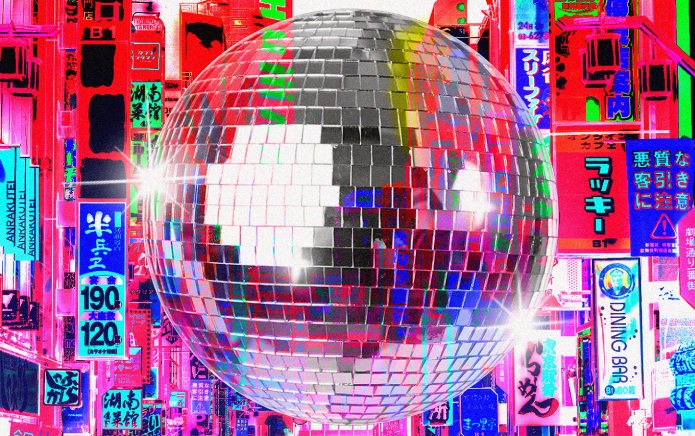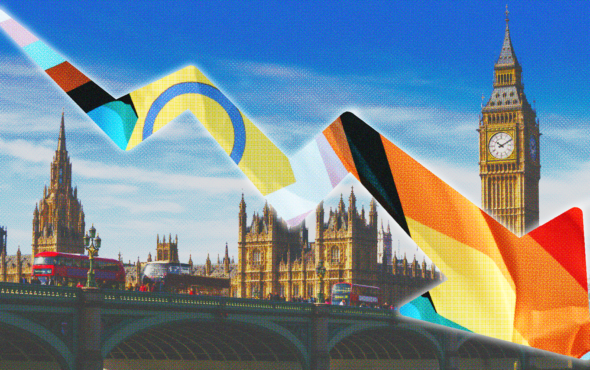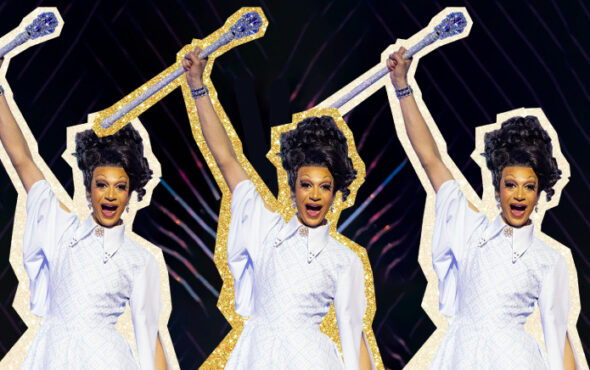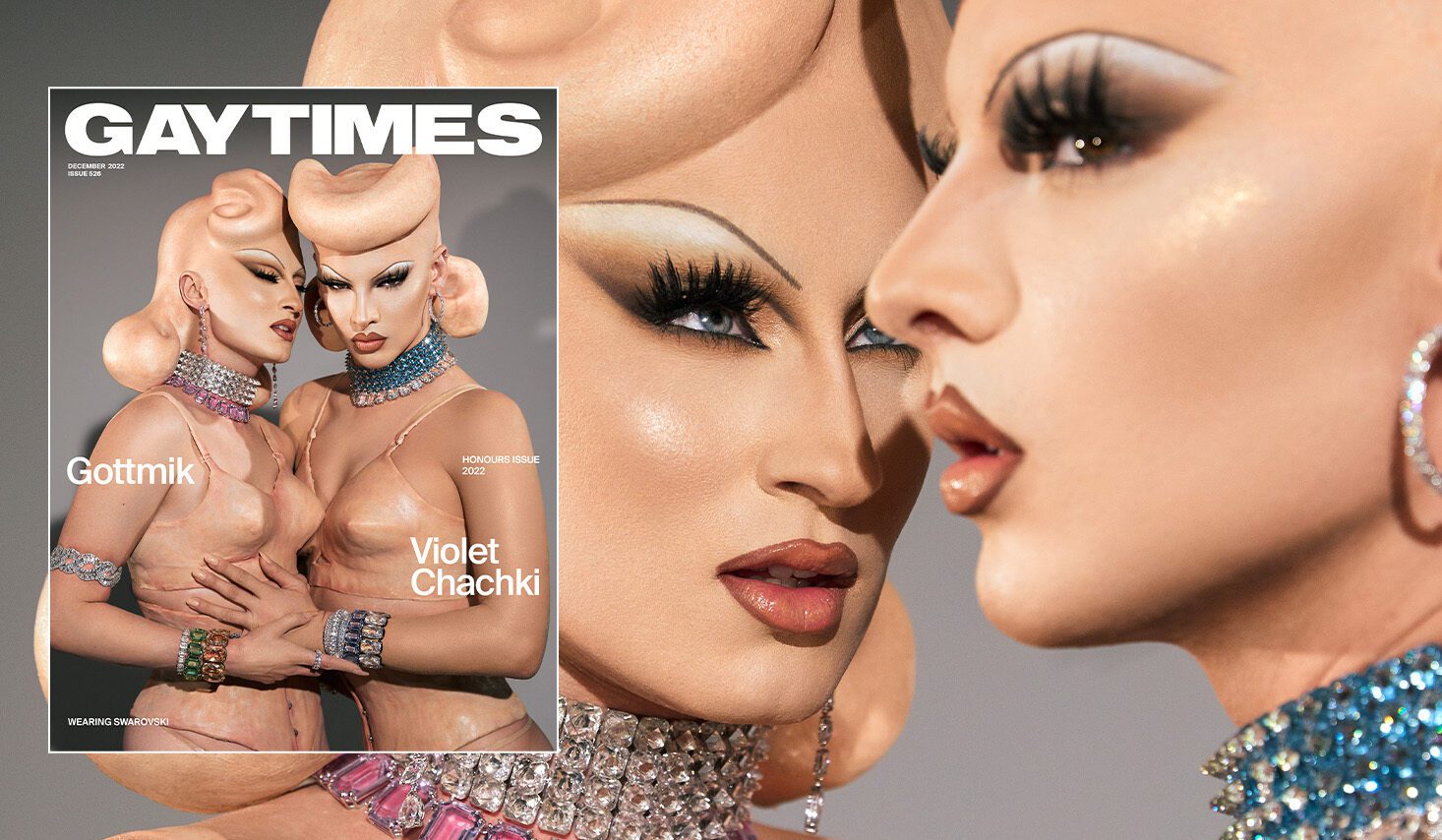
“I think that me and Mik just get each other,” says Violet Chachki of longtime collaborator and friend, Gottmik. “I don’t feel like I’ve really related to other drag queens in the same way.” Despite never competing on the same season of RuPaul’s Drag Race, the show where they both found fame six years apart, the two have partnered on a podcast, tours and simply being gorge. Their world domination is far from over, as the two are showing no signs of slowing down anytime soon. “I’ve had, of course, previous friends that have been on Drag Race and everything,” Violet continues, “but I just think me and Mik, like, business wise, think the same way and expect the same things.” Their latest venture saw them host GAY TIMES Honours in London together on 25 November, which Gottmik describes as “a super full circle moment” because she has done makeup for previous cover stars and is a longtime friend of the outlet. “Our best comedy and when we work best together is when we’re just laughing together because we just really genuinely do get along so well,” she says of their hosting style, “and it just shows the best when we’re not even thinking about anything and just having fun.”
But when did they first become friends, let alone the like-minded business duo they are now? “Well, Mik was a fan of mine back in the day, since I was on Drag Race such a long time ago as Mik will happily remind me,” Violet says wryly, with a heavy emphasis on the “such”. She explains that they first met on Halloween roughly seven years ago, when Gottmik was working the door of a club in Los Angeles. “I don’t really know why, honestly, now that I’m thinking about it. Like, why were you working the door? I have no clue,” Violet jokes, with Gottmik swiftly clarifying this: “I don’t know girl – I took any gig I could get.” She adds that their relationship really took off after appearing on season 13 of Drag Race as they ended up sharing a trailer on a tour they did together. “And I think one day we were just like, ‘We should record this shit, whether people want to hear it or not, it’s fun for us!’ and we just kind of wanted to start doing that together because it’s just so, so amazing, what we get to do.” Everything happened “at the right time” in their friendship, Violet says, as Gottmik helped to revive her “love for drag” after doing it by herself “at this level” for so long. “I’m sort of at my limit for doing it alone.”
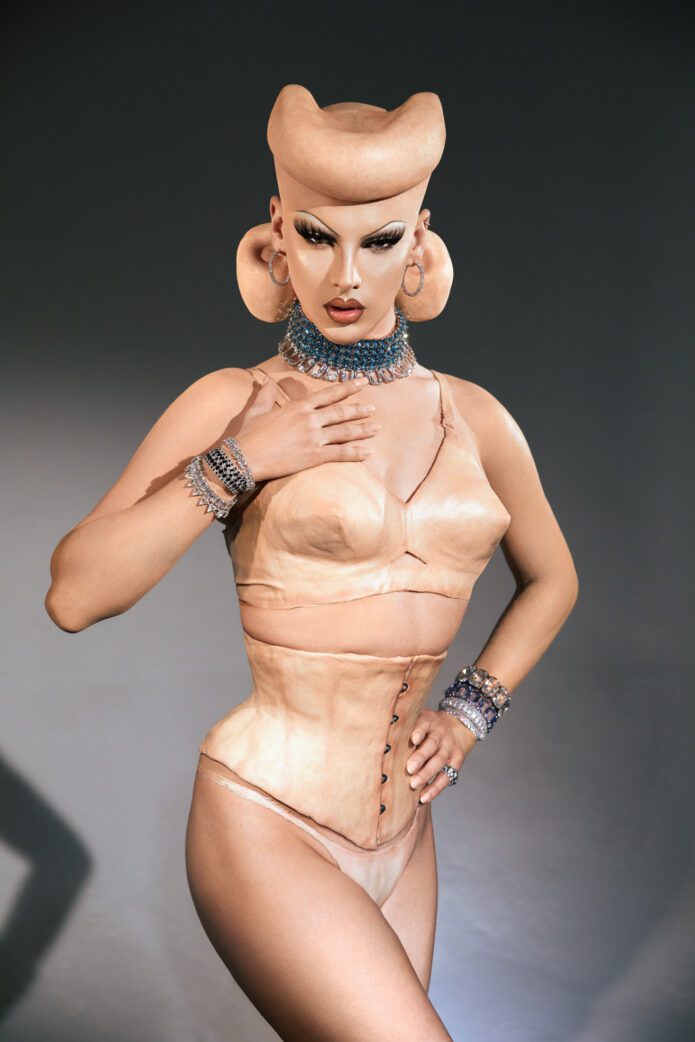
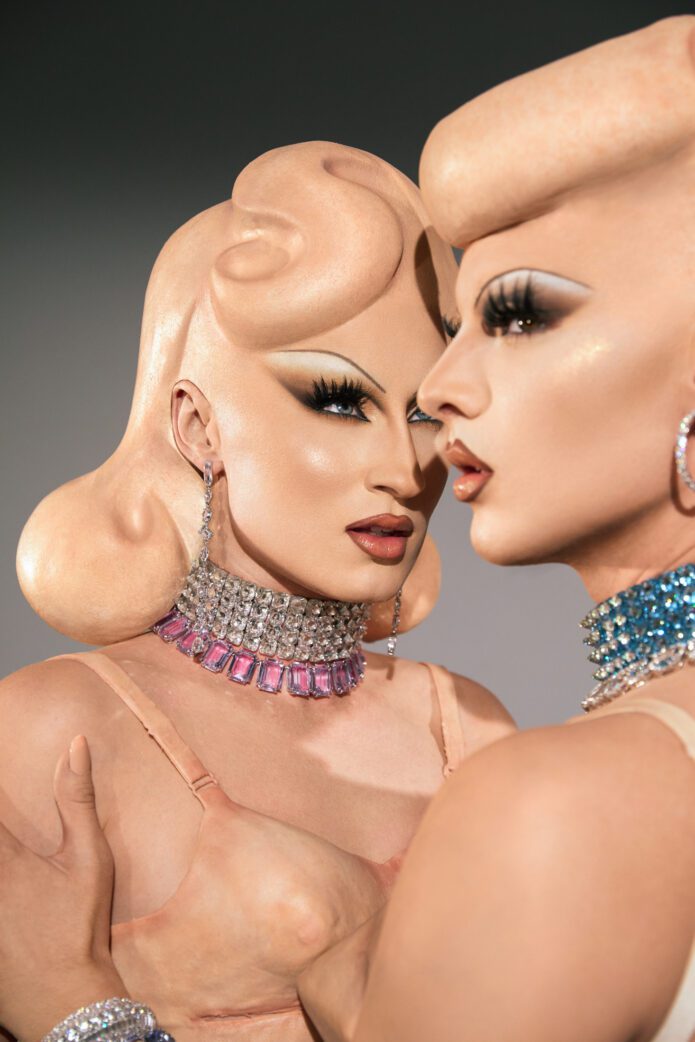
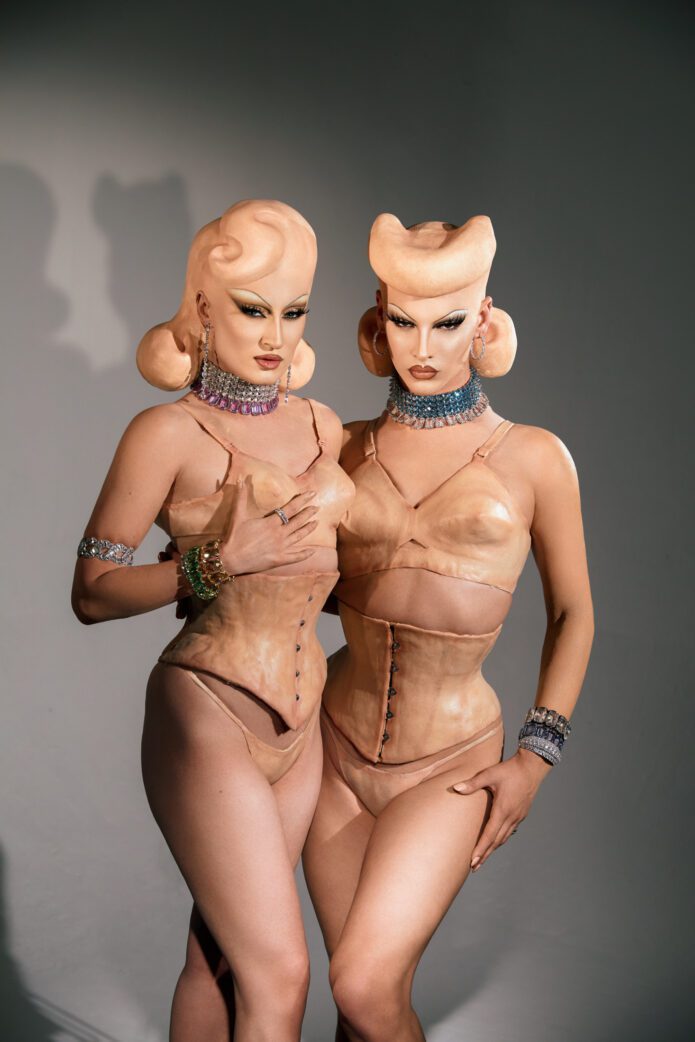
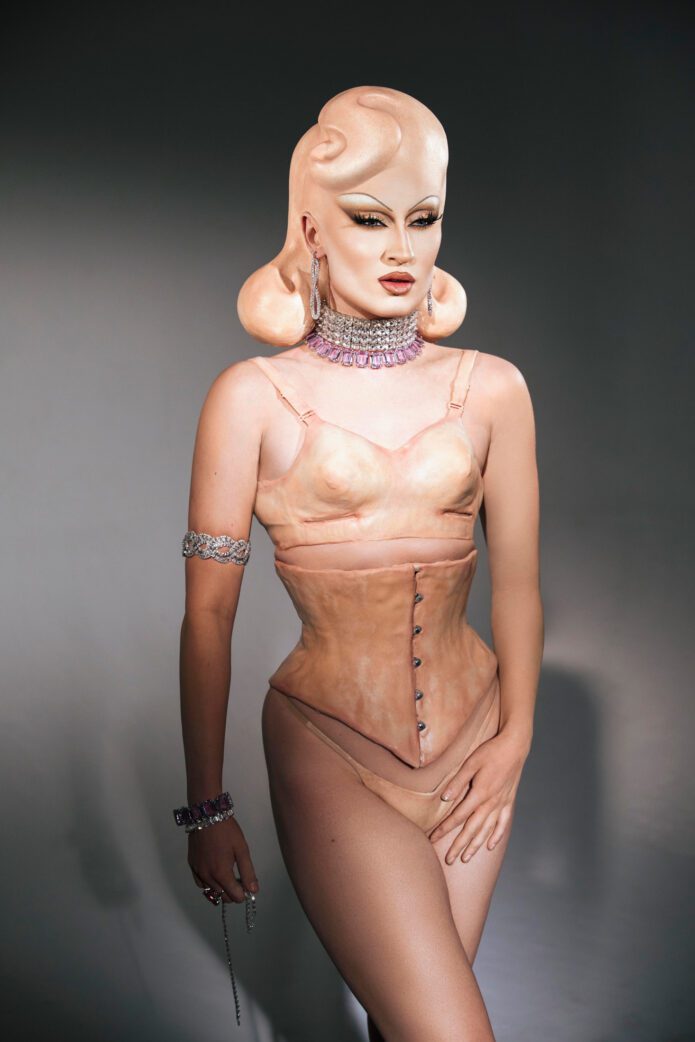
Although both queens have their own perspectives on fashion and art, they often draw inspiration from similar references due to having “a lot of crossover” in their interests. “I mean, we just want to elevate drag and keep pushing it forward and looking to the future and what that looks like, always, and we have a long list of things that we don’t like, so it gets very specific for the things that we do like,” Violet explains. Anyone who has seen an episode of Fashion Photo RuView starring Violet or Gottmik will know the high standards they have when it comes to fashion, though both openly acknowledge that they hold themselves to the “highest expectations” possible as well. According to Gottmik, part of the reason for this is that they both share the common goal of trying to break drag artists free from the “little pocket of pop culture” they are often shoved into: “[We] really just want to push the envelope constantly as queer artists and I feel like that’s a fight that is far, far, far from over. And so I think we just want to push our artistry as hard as possible so no one could ever ignore the artistry being put on the table via the ‘no gorge’ dolls.”
From Violet becoming one of the first drag queens to attend the Met Gala to Gottmik appearing in Rihanna’s Savage X Fenty Show, both have an endless stream of individual successes and are undeniably two of the most unstoppable forces in the world of drag and beyond. Earlier this year, Gottmik appeared on the cover of British Vogue out of drag in what she describes as a “mind-blowing” achievement: “High school me just never would have even thought that was possible,” she says of the experience, adding: “Like, that wasn’t even a dream of mine because I never even thought that would be possible.” For Violet, her A Lot More Me solo show, which was performed in cities all over the world, made it possible to prove a lot of those who doubted her wrong. “I feel like a lot of people, like my previous managers or even like, naysayers, Drag Race fans or whatever it may be,” she says, “sort of put you in a box as a look queen or untalented or whatever it may be, and so to have a successful solo touring show is definitely one of my proudest moments because it’s like, this is my goal, I did it.”
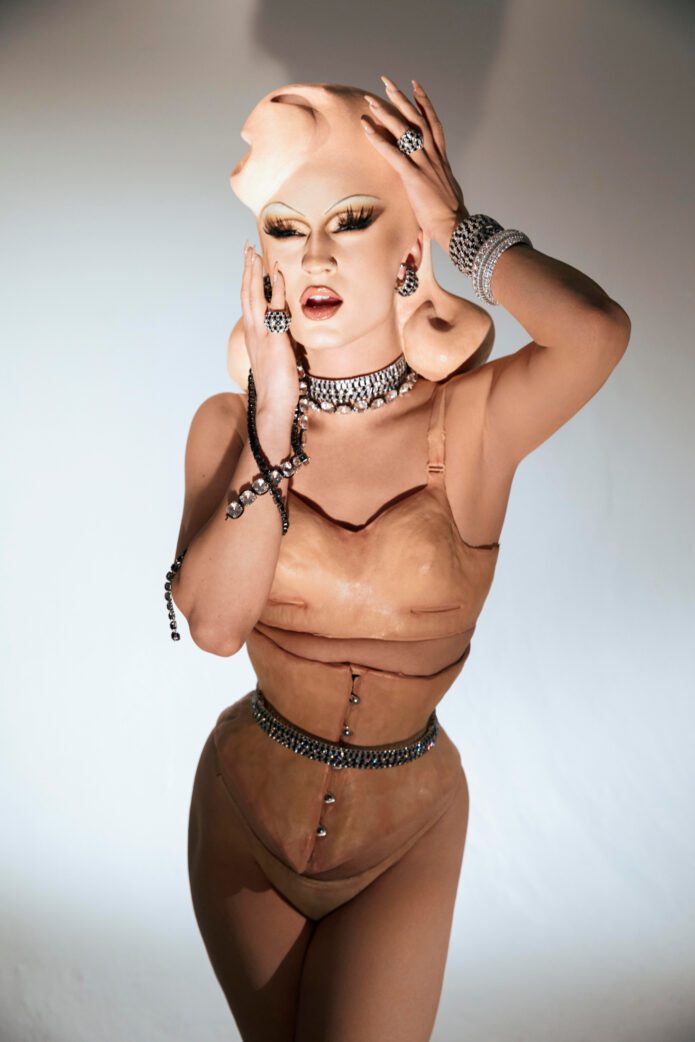
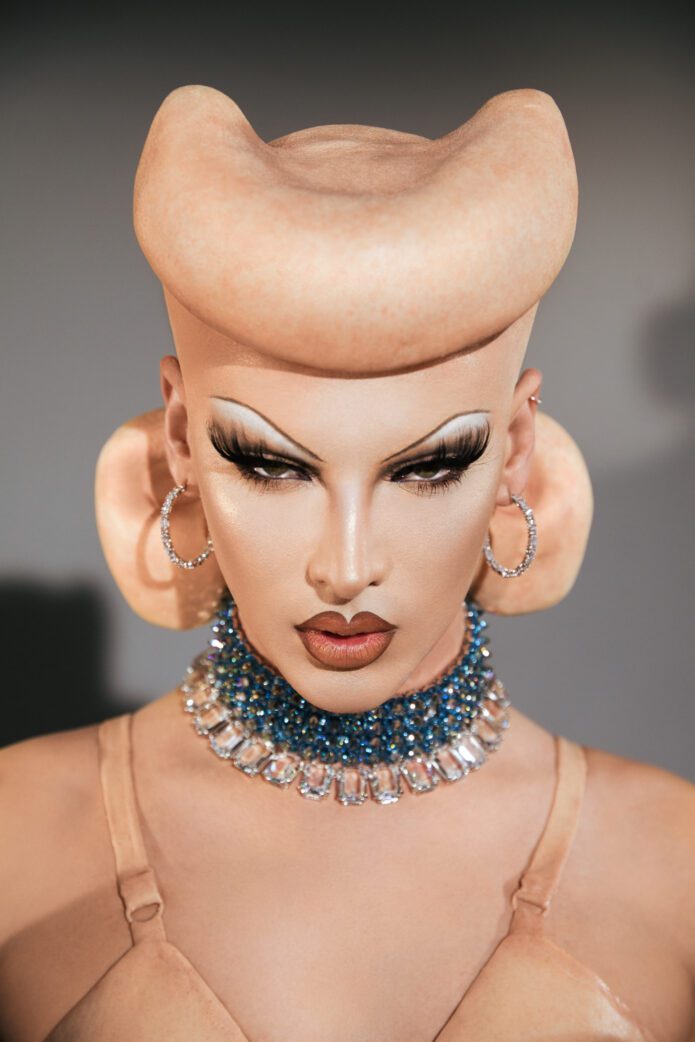
Something that may not have been on Violet or Gottmik’s bucket list was appearing in a music video for one of Sam Smith’s hit singles. Unholy, a collaboration with Kim Petras, made the stars the first openly non-binary person and first openly transgender woman, respectively, to reach number one on the US Billboard Hot 100 – something Violet says was “powerful” to be a part of. Its accompanying visuals are, as she puts it, defiantly “progressive and queer” and help bring LGBTQ+ culture into the mainstream. She sees the song as “sort of a ‘fuck you’ to the heteronormative glass ceiling” queer people are often held back by, which is something she and Gottmik, the first openly trans person to compete on Drag Race, often challenge in their work and the way they play with the social construct that is gender. “I love drag so much and fell in love with drag so hardcore because it’s just whatever you want it to be and it’s such a cool way to express gender and play with gender,” Gottmik explains. “And like, I use it as a way to fully figure out my gender, let alone [to] use it as art and so, now that I am transitioned and I’m comfortable with myself out of drag, I use it fully as art and I love making cool gender statements with it and playing with gender and looking like some weird, genderless alien at all times. So I’m very happy that I found drag and I’m able to express myself through it.”
There is undoubtedly a dark side to being a drag performer in the limelight, though, as the court of public opinion has been amplified more than ever by social media – making it impossible to ignore at times. Drag Race alumni in particular face an increasing amount of online hate, which can range from nasty messages to death threats. Violet’s tone gets more serious as she explains what it’s like to be on the receiving end of this. “I feel like, especially lately, we’ve been dealing with it more than usual and it changes every day, like some days it really affects me,” she says. “And some days I’m like, fuck those people. Like, they don’t know who I am. They don’t know me. They don’t know where I come from. They don’t know anything about me. They’re just making assumptions and projecting things on me – but every day it’s different. Like, some days I really can’t handle it and I have to completely log off.” Gottmik adds that, although a “certain amount of internet hate is just always going to somewhat get to you,” it’s important to focus on the way you feel about yourself and the people around you: “And so, as long as I just stay nice, I guess, and keep putting out good energy, the universe is going to give what we give. And so, just because a few people online hate me for no reason because of like, a rumour or whatever their reasoning is, everyone that knows me in person gets a good experience, I hope.”
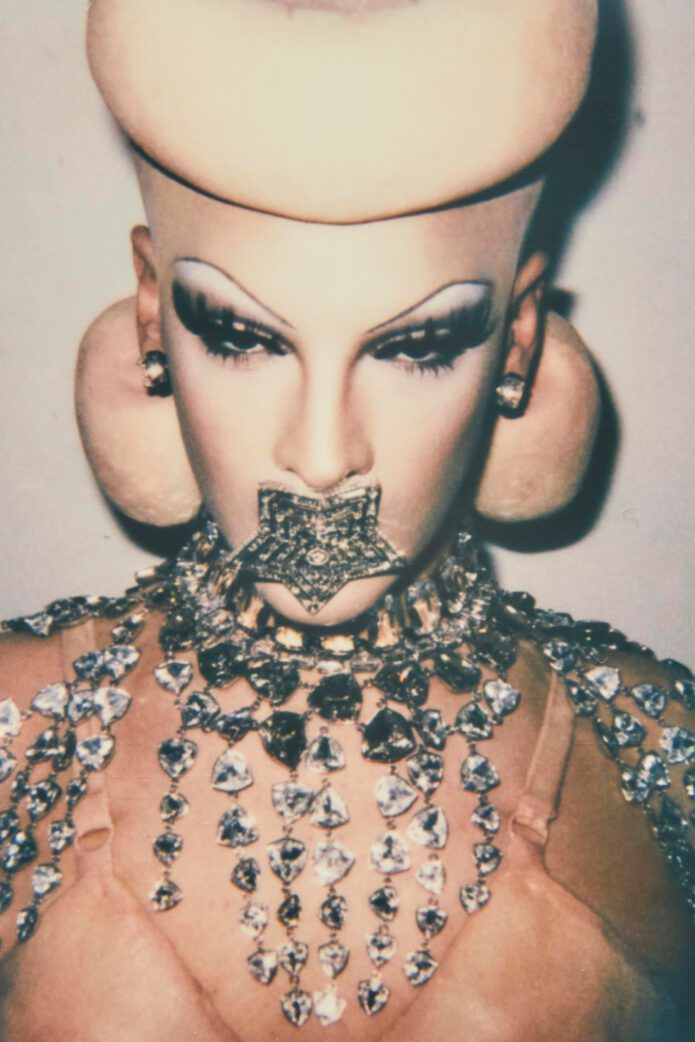
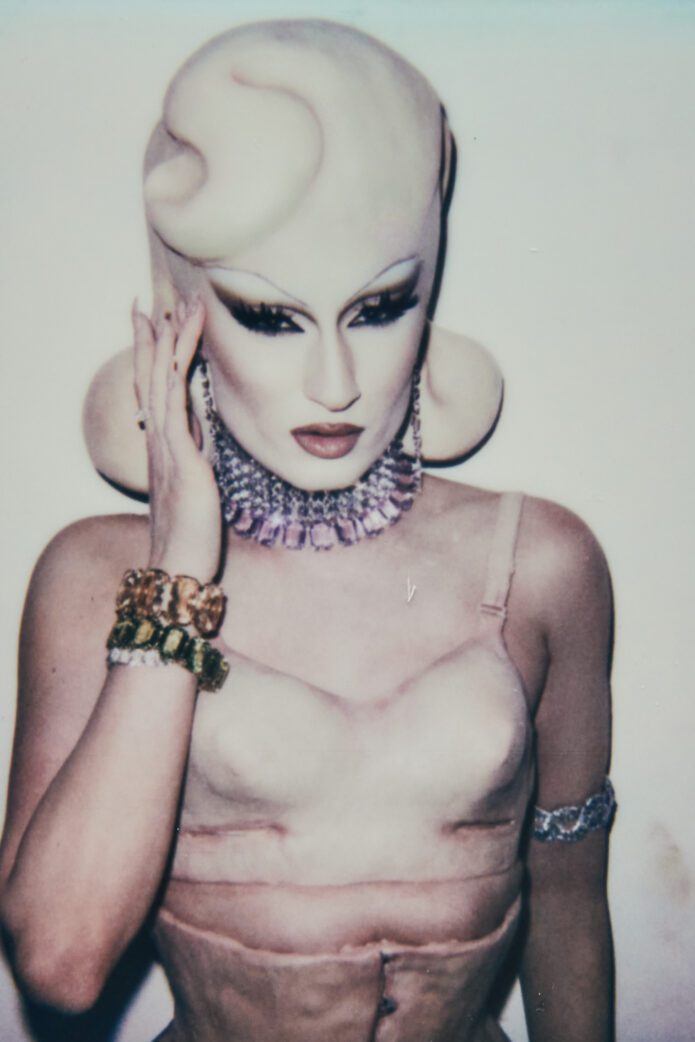
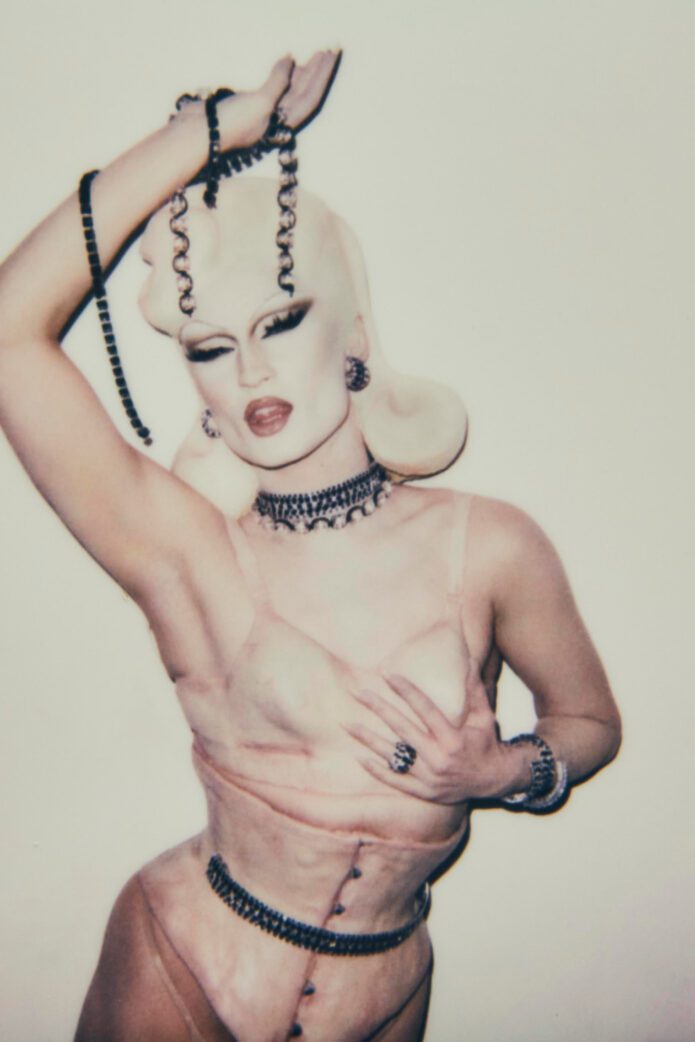
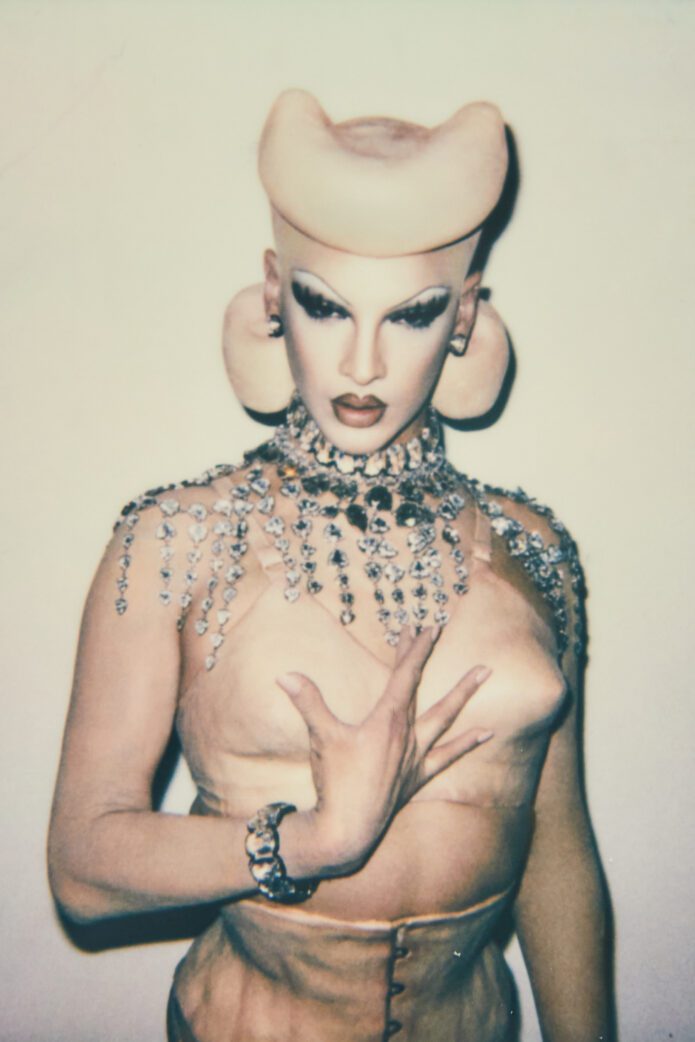
This issue is bigger than any individual queen, as the art of drag is facing increasing amounts of scrutiny from right wing groups in the US. Violet says this “anti-drag push” is being weaponised by conservatives as a “distraction”: “It’s such a tactic when there’s so many more pressing issues, in the States especially, that need to be focused on.” With both she and Gottmik working to push queer art into the mainstream even more, Violet adds that representation is imperative for LGBTQ+ artists “to be taken more seriously and put at the same level as our cis-hetero counterparts.” She continues: “And so for us, it’s just about, you know, being seen as equal, not just legally, but being treated equally, like with getting paid, getting compensated, getting showcased in the same way. And it’s super important and it’s working! Drag Race alone, I think, has had a huge impact on young people and getting that visibility and telling our stories and getting those stories out there, along with other shows, you know, Pose and Transparent, all these shows help to shed light on the queer community.” Violet feels that at times “people forget the humanity” of others because of technology and social media. “I think another thing that really, I guess bothers me about the whole thing is there’s real, true, true evil in the world, like truly evil people doing truly evil things and our attention just seems so misguided sometimes with whatever sensationalised thing is going on on the internet,” she states, adding that this all sadly “comes with the territory” for people creating art. It’s exactly that, however, which helps her handle it: “That’s the only thing that really drives me forward, is submersing myself in my creativity and ignoring all of that stuff and working on a project, or creative directing something, or fantasising about interior design or something that is going to be progressive for me, just as a mental health break [and] outlet.” Gottmik clearly knows her friend well as she swiftly jokes, “I know Violet’s having a bad week when I go to her house and there’s ten new lamps.”
There are, however, times when the queens can see the “funny” side to this online rhetoric as it often comes from people who have no experience with drag as an artform. “I feel like drag got to a place where it’s almost like a football game,” Gottmik says as she laughs. “I don’t know fucking shit about football, but I love watching the Super Bowl and I will comment on everything. As long as you’re respectful and you aren’t giving hate, you can have an opinion. It’s like, I wouldn’t be doing the art and putting it out publicly if I didn’t want to have a little perception of it, you know?” Some of the comments Violet finds most entertaining are the ones where people complain about her showing the “same” corseted silhouette they say they’ve seen from her before: “I’m like, yes, a corset again, I love corsets. What is so hard to understand? Like, yes, this is my aesthetic, I’m going to drill it into the ground and do it every which way I possibly can…I really do my art for me, so I think it’s funny when someone who doesn’t know what they’re talking about has an opinion – I kind of like it.”
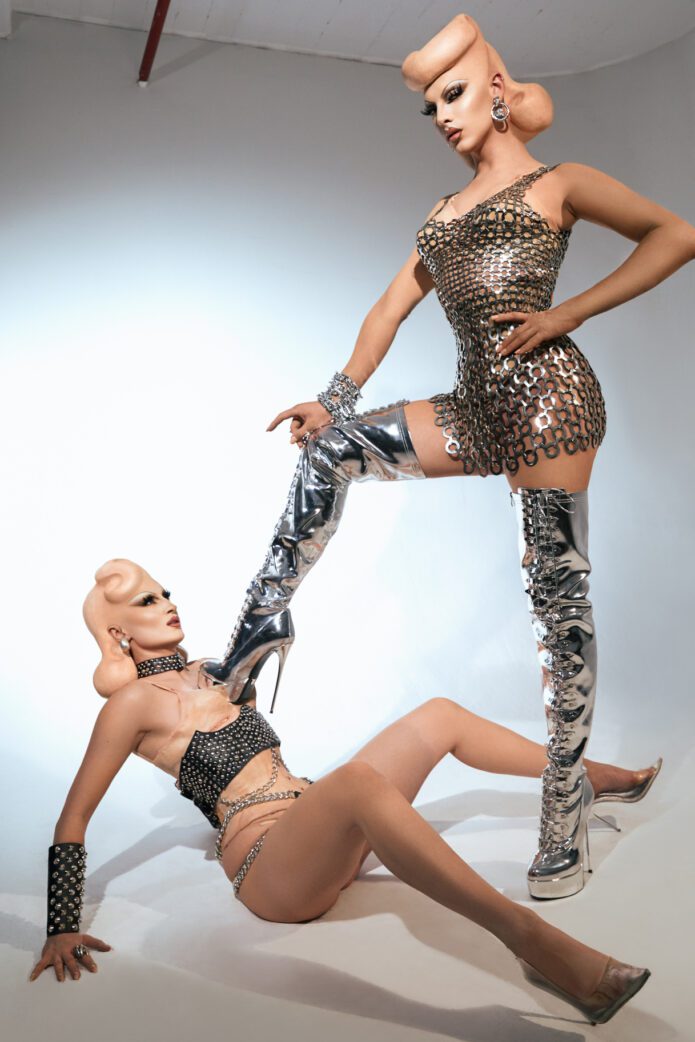
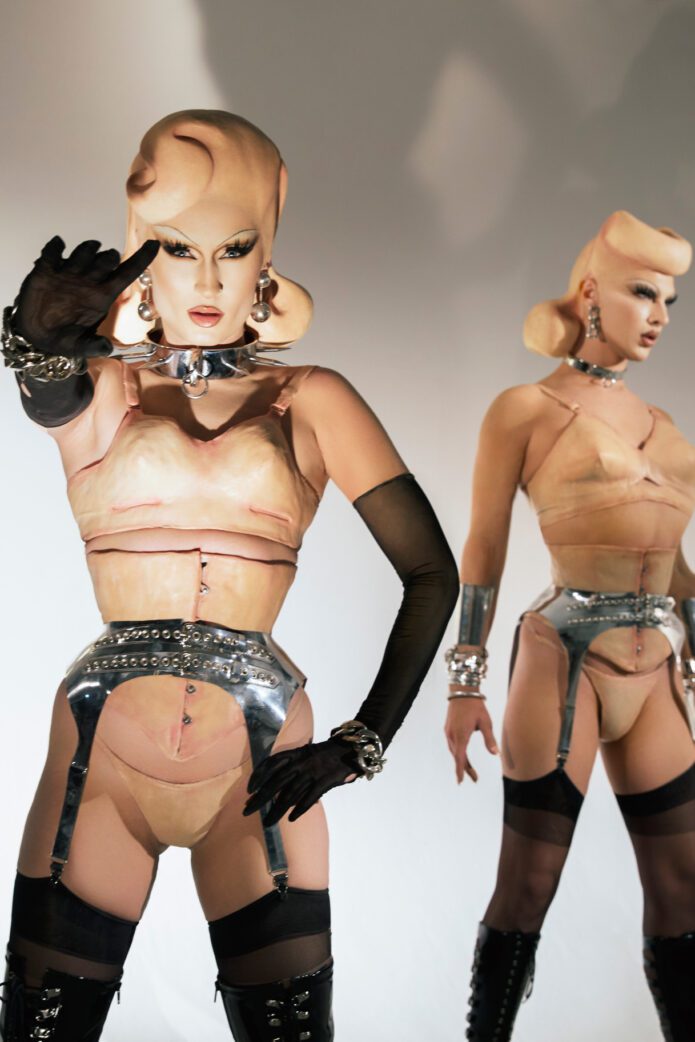
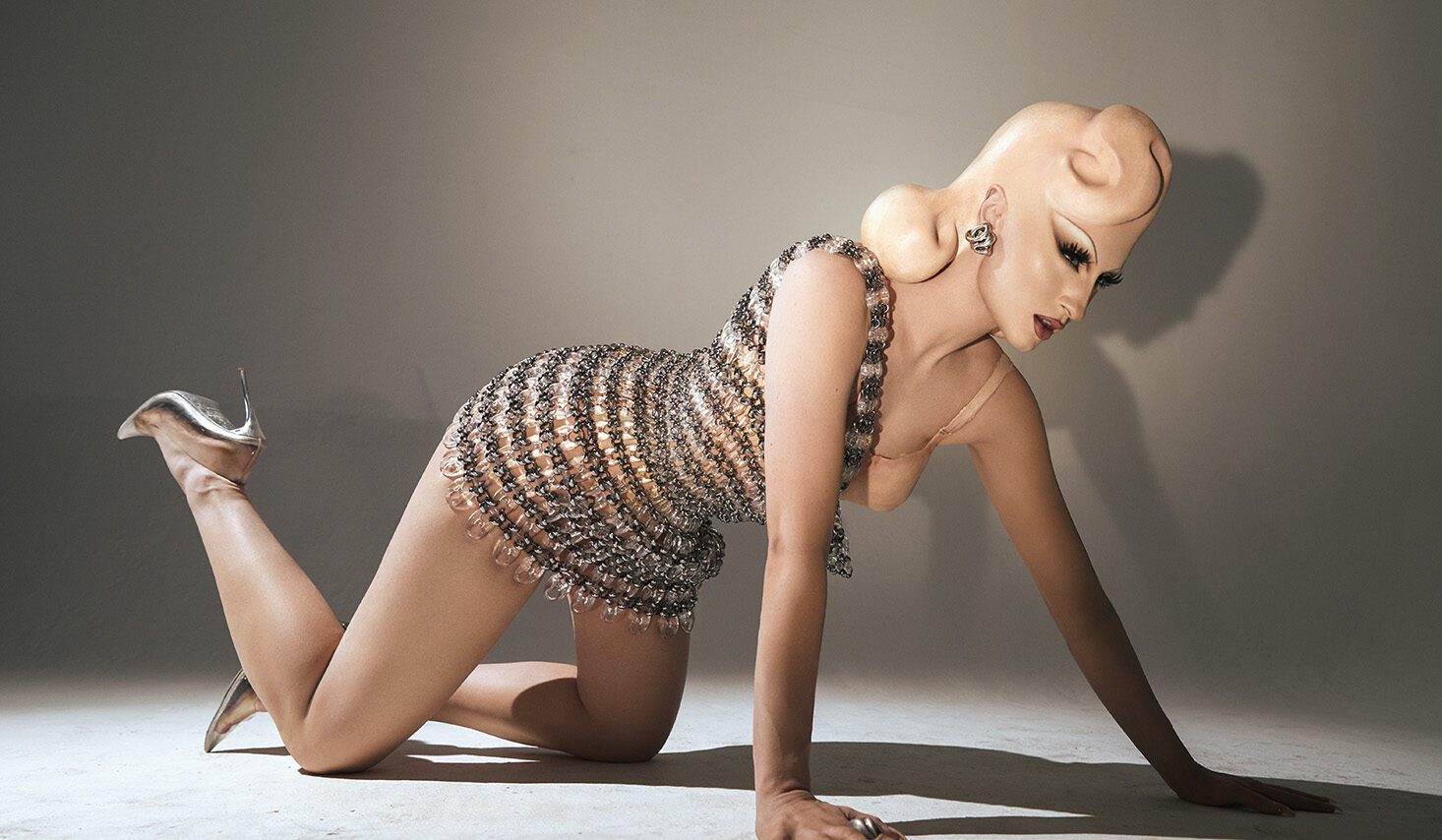
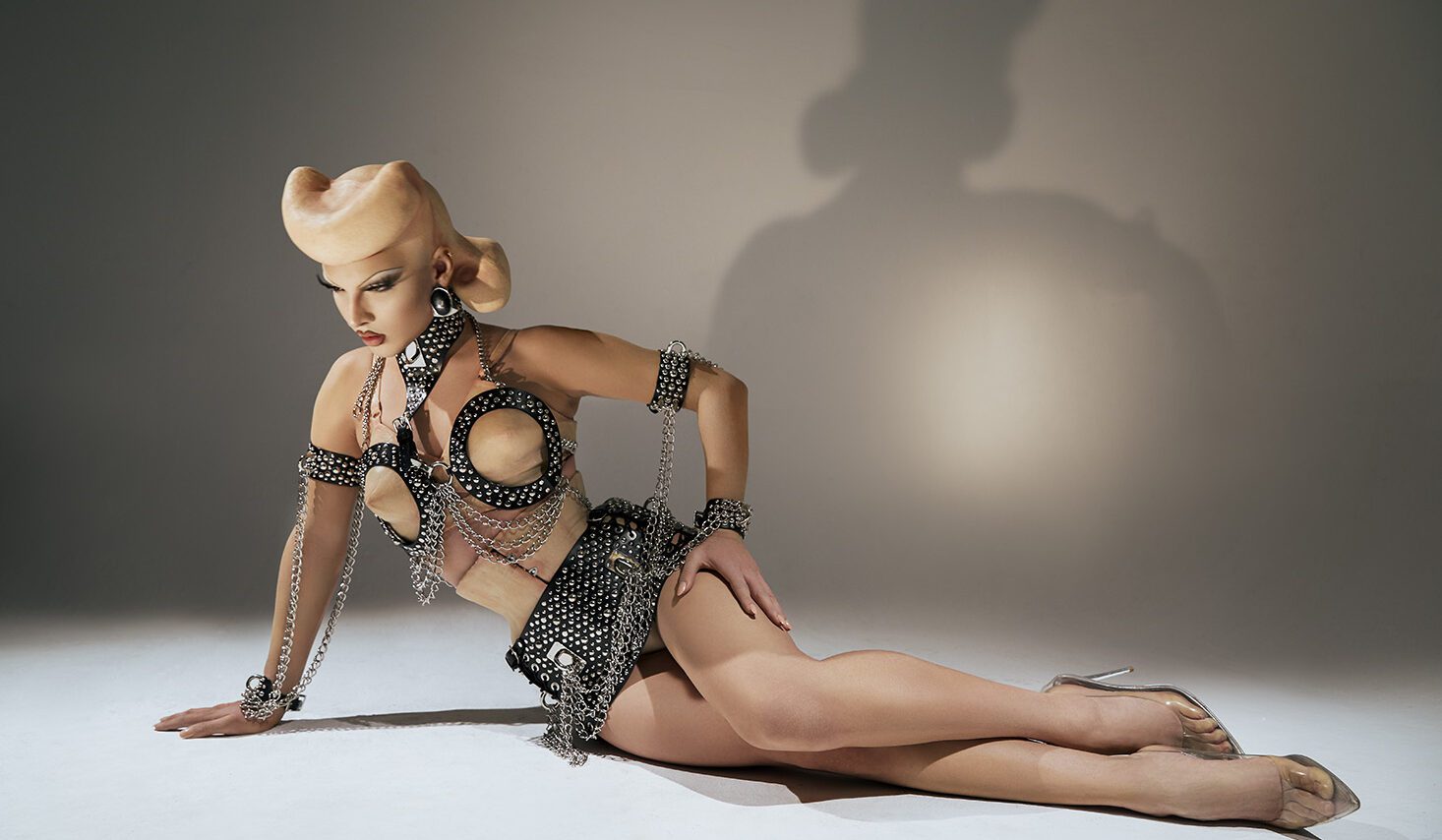
Given how far the queens have come since their seasons of Drag Race, it’s hard to imagine either of them putting their many projects to the side and returning to the mainstage anytime soon. However, Gottmik reveals that she is absolutely open to a comeback once she feels “more established” in other parts of her career. “I loved being on Drag Race,” she excitedly shares. “I literally had the best time of my life. It feels like a drag summer camp and I just love that environment and going on something like All Stars would be really fun and, like I said, I’ve grown so much already. So I definitely would love that in the future.” On the other hand, Violet says she has “finally” started feeling “comfortable enough to keep pursuing things outside of the Drag Race world” after at times feeling defined by her time on the show. “I used to say that I would love to go back, but I don’t think so anymore – it’s just not for me,” she says after thinking for a moment. “I finally feel like I’m at a place where I can sort of branch out and do other things and work on other projects. And I definitely love working in TV, but the Drag Race fandom in the franchise is just so intense.” She highlights the toll that getting ready for, filming and promoting a season of the show takes on your physical and mental health: “I am a lady of a certain age now…I get anxiety just thinking about Drag Race. It really was one of the hardest things I’ve done and I was in such a different headspace, whatever, eight years ago that I was just so determined and I was so driven and it was like, truly my only focus in life was drag and Drag Race and winning. And I was so determined and headstrong and I’m just not in that headspace anymore. So for me, it’s probably a no.” Violet does, however, joke that she is a Gemini and could always change her mind, with Gottmik quickly interrupting to say: “Oh, the second Ms RuPaul calls, she’ll get her ass back there!”
The recent overturning of Roe v. Wade has thrown the future of LGBTQ+ rights into uncertainty in the US, especially when it comes to hard-fought battles surrounding things like same-sex marriage. Discussing how they want to see things progress for the community, Gottmik and Violet each emphasise the importance of both societal and legal acceptance. “That’s what Violet and I are fighting for every single day,” Gottmik says, explaining that she still faces the issue of having to ask herself whether or not she has been offered a gig to tick a “diversity checkmark box” or because they actually want her. “It’s this weird game because that exists [and] it’s like, okay, this company just offered me a gorge job, but I’m not going to say yes to it because I just googled them and they have done sketchy, weird, not nice stuff to the community.” Violet is quick to agree, adding that it sometimes feels as though LGBTQ+ people “are looked at as truly like second class or accessories to cis-hetero people.” She wants “us to fully come into our own and own the power of being queer even more” and uses Drag Race as an example of how far we still have to go: “It didn’t start winning Emmys until like eight years in, you know? And for me, the first couple of seasons were so impactful and such amazing television, and it just feels like it takes so long to get recognised and to get our accolades and our little claps. It just feels like, comparatively, it’s not on the same level and I think it has to do with bigotry and homophobia.” Looking at the “long journey” ahead of us on the road to achieving equality, Gottmik plans to pursue more work in activism. “All we can do is keep being loud and keep being proud and keep being ourselves and standing up for the community,” she says. “The fight is not over and I’m not stopping anytime soon, honey.”
